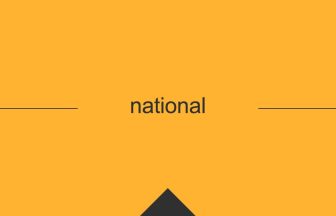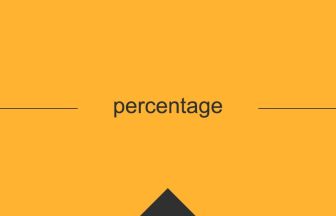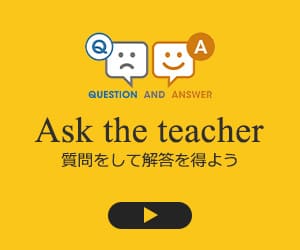定義 / Definition
[adjective]
・in an early stage of life or growth
・used to denote the younger of two people of the same name.
[noun]
・offspring, especially of an animal before or soon after birth.
— その他 例文 —
You’re only young once.
若い時は 1 度だけです
My youngest son is called Bob.
私の一番下の息子はボブと呼ばれています。
He is not younger than my father.
彼は私の父より若いということはない。
Sue is three years younger than Tim.
スーはティムより 3 歳年下だ。
Racquetball is a young person’s game.
ラケットボールは若い人の競技です。
Inexperienced teachers are often young.
経験のない教師たちは若い人であることが多いです。
He looks much younger than he really is.
彼は実際の年齢よりずっと若く見える。
Our lives were more adventurous when we were young.
私たちが若かったとき、私たちの生活はもっと冒険に満ちていました。
The teacher introduced this morning looks very young.
今朝紹介された先生はとても若く見えます。
The young scientist was pleased to have been recognized.
その若い科学者は認められてよろこびました。
These days, schools don’t teach young people to function in society.
最近、学校は若い人たちに社会での役目の果たし方を教えません。
Sally likes to wiggle her loose tooth to make the younger children laugh.
サリーは、幼い子どもたちを笑わせるために、自分のぐらぐらの歯を小刻みに揺らせるのが好きです。
Young children are very fond of coloring pictures with crayons in coloring books.
幼い子どもたちはぬり絵帳の絵にクレヨンで色をつけるのがとても好きです。
Mrs. Warner’s youngest daughter is always running around and is the most energetic one.
ワーナー夫人の末娘さんはいつも走り回っていて、最も元気な子です。
It’s nice of Ellie to help her younger brother with his math homework even though she is tired after work.
仕事から疲れて帰ったあとだとしても、弟の数学の宿題を手伝ってくれるなんてエリーは優しいです。
The Education Ministry officials were not happy to see the steadily declining mathematics scores among the young people of Japan.
文部省の役人たちは、日本の若者の間で数学の成績が着実に下がり続けていることに不満でした。
![英語・英会話の効果的な学習法|PM English[全無料] 英語・英会話の効果的な学習法|PM English[全無料]](https://pm-school.info/english/wp-content/uploads/2021/11/logot.png?1770964917)
















![中学英語やり直し[中学英文法 基礎確認問題]](https://pm-school.info/english/wp-content/uploads/2023/09/kiso-1-150x150.jpg)
![中学英語やり直し[中学英文法の基礎確認問題]](https://pm-school.info/english/wp-content/uploads/2023/09/kisokakunn-150x150.jpg)
![中学英語やり直し[関係代名詞と接続詞のthatの違い]](https://pm-school.info/english/wp-content/uploads/2023/09/kankei-setuzoku-150x150.jpg)
![中学英語やり直し[中学英語の復習問題]](https://pm-school.info/english/wp-content/uploads/2023/09/kiso-150x150.jpg)
![中学英語やり直し[基礎英文法の復習問題]](https://pm-school.info/english/wp-content/uploads/2023/09/fukusyuumondai-150x150.jpg)









![[列車 電車]に関わる英語の表現を学ぼう](https://pm-school.info/english/wp-content/uploads/2022/11/train-150x150.jpg)



![英語・英会話の効果的な学習法|PM English[全無料] 英語・英会話の効果的な学習法|PM English[全無料]](https://pm-school.info/english/wp-content/uploads/2021/11/logom.png?1770964917)